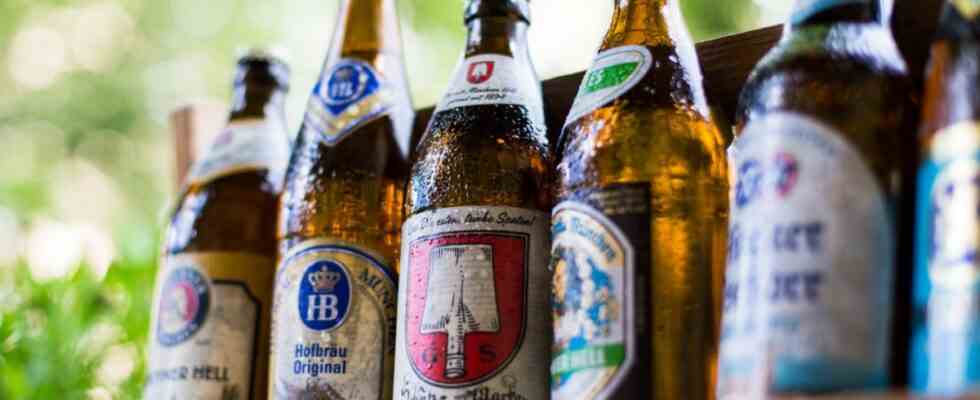One shines golden in the glass jug, the other is barely visible and flows through pipelines. We’re talking about beer and gas – one often cannot do without the other. After all, many breweries use gas as an energy source to brew beer. And that is currently in short supply. Time to ask around how the Munich breweries are doing in view of the energy crisis.
“Due to the rising energy prices, we have really stepped on the gas so that we can quickly move to a more energy-efficient brewery,” says Marta Girg from Haderner Bräu. The small organic brewery actually wanted to open its farm shop and bar in mid-July, but that has to wait for now. Now the focus is on moving as soon as possible to the new brewery, which is being built near the facility at the Stürzerhof, which has become too small. As soon as the brewing kettles are heated up there, the rising energy prices are no longer a big factor, says Girg. Other costs, such as the high petrol prices for delivery routes, were kept within reasonable limits because the Haderner Bräu works regionally.
A little further east, at Giesinger Bräu, people are wary of rising energy prices. “We have long-term contracts for the gas price, but if the energy suppliers don’t comply with them, that doesn’t help us either,” says the founder of Giesinger Bräu, Steffen Marx. Although the 44-year-old hopes that small businesses will be protected, he still has the “super disaster” in the back of his mind. That would happen if the gas fails and they can no longer brew beer. “Of course, that would be catastrophic for our company and our consumers,” says Marx.
That’s why emergency plans are already being worked out, for example how to switch from gas to oil. The Giesinger Bräu can also save energy with the bottle washing machine. This has to be heated with steam, which costs a lot of energy. Instead of running the machine three times a week, you can try to reduce it to once a week, says Marx. This saves heating energy.
Steffen Marx, the managing director of the Giesinger Bräu, is already examining ways of saving energy when brewing beer.
(Photo: Stephan Rumpf)
Other Munich breweries are also preparing for a possible gas shortage. According to the company, Hofbräu Munich can switch from gas to oil at short notice. The international brewing group Anheuser-Busch InBev, which owns the Munich beer brands Spaten, Franziskaner and Löwenbräu, writes on request that the current very dynamic situation in the energy supply is a major burden. Energy prices have risen massively; if the gas should fail, there are contingency plans. For example, they want to push the switch to renewable energies with greater vigour. “Nevertheless, we are dependent on further gas supplies in order to be able to ensure a continuous and unrestricted brewing process,” Anheuser-Busch said.
It is not only the high energy prices that are causing problems for the Munich breweries, the increased prices for staff, glass and raw materials such as malt and hops are also having an impact on the beer producers. Hofbräu München reports additional costs of about nine cents per liter when purchasing new glass. Personnel costs rose by 3.6 percent after increases in January and June.
What are the effects of the increased costs on consumers? “As soon as we know the situation regarding future raw material costs, we will carry out a new calculation of the beer prices,” Hofbräu München informed on request. Spaten, Franziskaner and Löwenbräu do not want to comment on the possible consequences for consumers.
At the Giesinger Bräu, the first round of price increases was left out, says Managing Director Marx. At the end of the year things will look different. “We will probably have to follow suit to a moderate extent,” said the 44-year-old. He doesn’t want to give any specific information, just this much: The price increase should remain under one euro per box.

